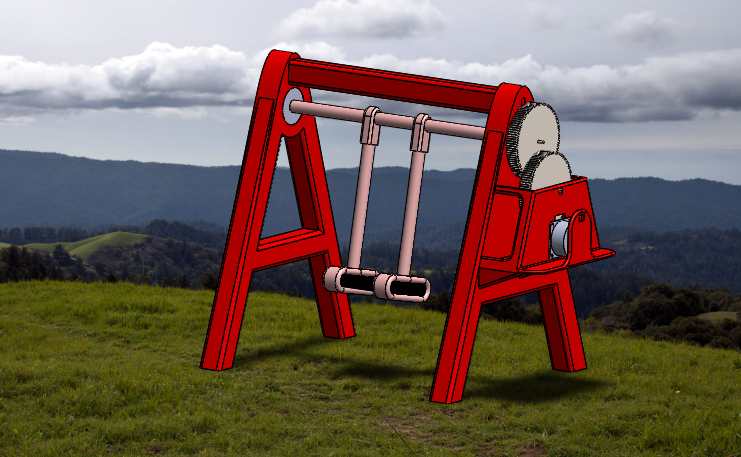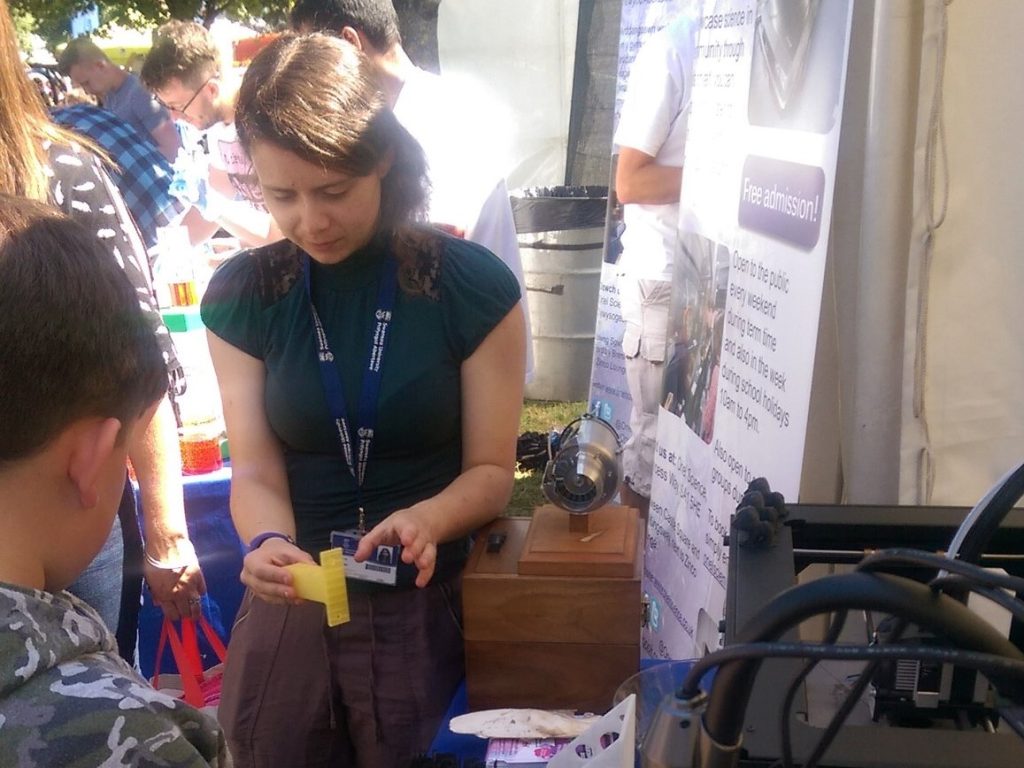Congratulations to Dr Sarah-Jane Potts for winning an Engineering Education Grant Scheme (EEGS) for her outreach project, which aims to inspire students to pursue engineering through fun, hands-on activities.
The project, called “Reimagine Energy”, will use interactive, miniature energy generating playground equipment to engage children in sustainable energy workshops. Sarah-Jane aims to encourage young people, especially girls, to see engineering as a creative and innovative career option. Engineering suffers from old-fashioned stereotypes, and by providing playful activities, she hopes to challenge misconceptions and make engineering more relatable to today’s students.
The kits include mini swings, see-saws, and carousels, that once assembled will generate their own energy to light up an LED. This will show students how engineering can be used to help solve the climate crisis through innovative forms of sustainable energy generation.
The workshops will target at least 500 children aged 8 – 18 across South Wales, including a high percentage of students from low socio-economic backgrounds. Engineers from Swansea University will take the kits and demonstrators to schools, youth groups, and science festivals to show how gear-systems, generators, kinetic energy systems, and solar cells work. The kits will be provided for students to assemble and test their own energy-generating playground equipment in the classroom.
The engineers will also record “How to” videos for making the playground kits with a 3D printer, expanding the project’s reach beyond South Wales.
Sarah-Jane Potts is a Technology Transfer Fellow at SPECIFIC, and an award-winning STEM ambassador with over ten years’ experience in outreach. The co-applicants, Amir Jalalian, Becky Waldram, and Laura Penney, will also support with delivering the project.
Dr Sarah-Jane Potts said:
“The climate crisis is a huge problem which many children are passionate about, and Engineering can be used to develop the solutions. However, Engineering suffers from old stereotypes that prevents many children, especially girls, from considering it as a career. Reimagine Energy aims to inspire children to discover Engineering solutions to sustainable energy, through highly interactive sessions involving play and everyday products.”
The Engineering Education Grant Scheme (EEGS), which is run by the Institution of Engineering and Technology and the Institution of Mechanical Engineers, aims to engage young people aged 4-19 in learning about engineering and to develop the professional skills of those involved in supporting Science Technology Engineering and Mathematics (STEM) learning and careers awareness.
Dr Alice Bunn OBE from the Institution of Mechanical Engineers, said:
“Imagine Energy project is a fantastic example of the kind of projects the EEGS scheme aims to promote. The UK is facing a critical engineering skills shortage and showing young people how creative and exciting engineering can be is a key way of inspiring the engineers of tomorrow.”
David Lakin, Head of Education at the Institution of Engineering and Technology, said:
“In order to tackle the engineering skills gap we need more graduates and apprentices to enter the profession, and this can only happen if more school-age children – girls as well as boys – are attracted to, and choose to study Science, Technology, Engineering and Maths subjects. The IET and IMechE are investing considerable resource in EEGS to support vital projects like Imagine Energy, which highlight the exciting, creative and rewarding world of engineering careers to young people.”




